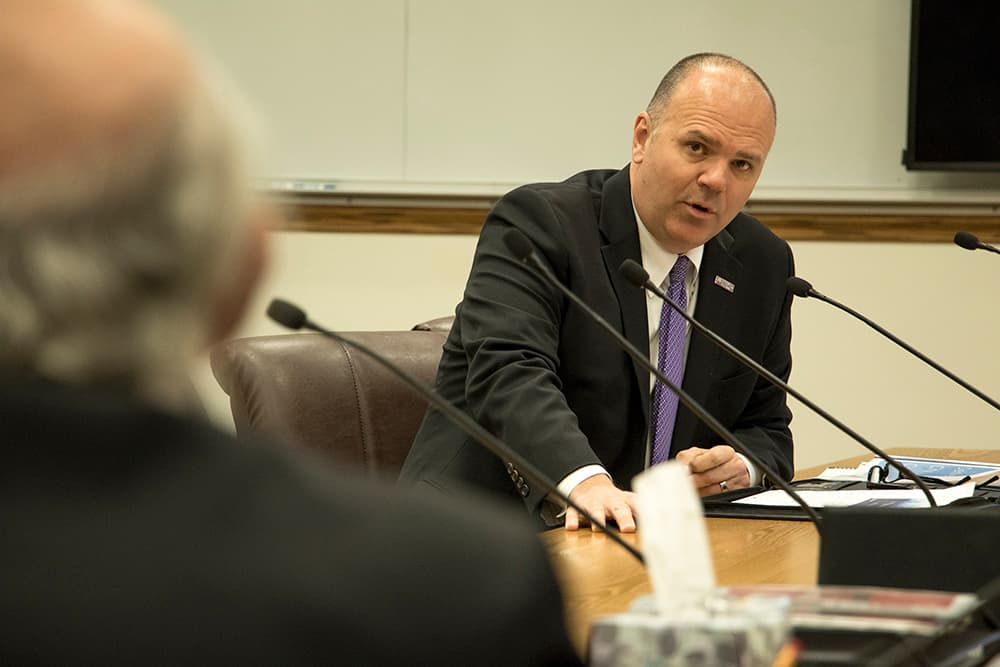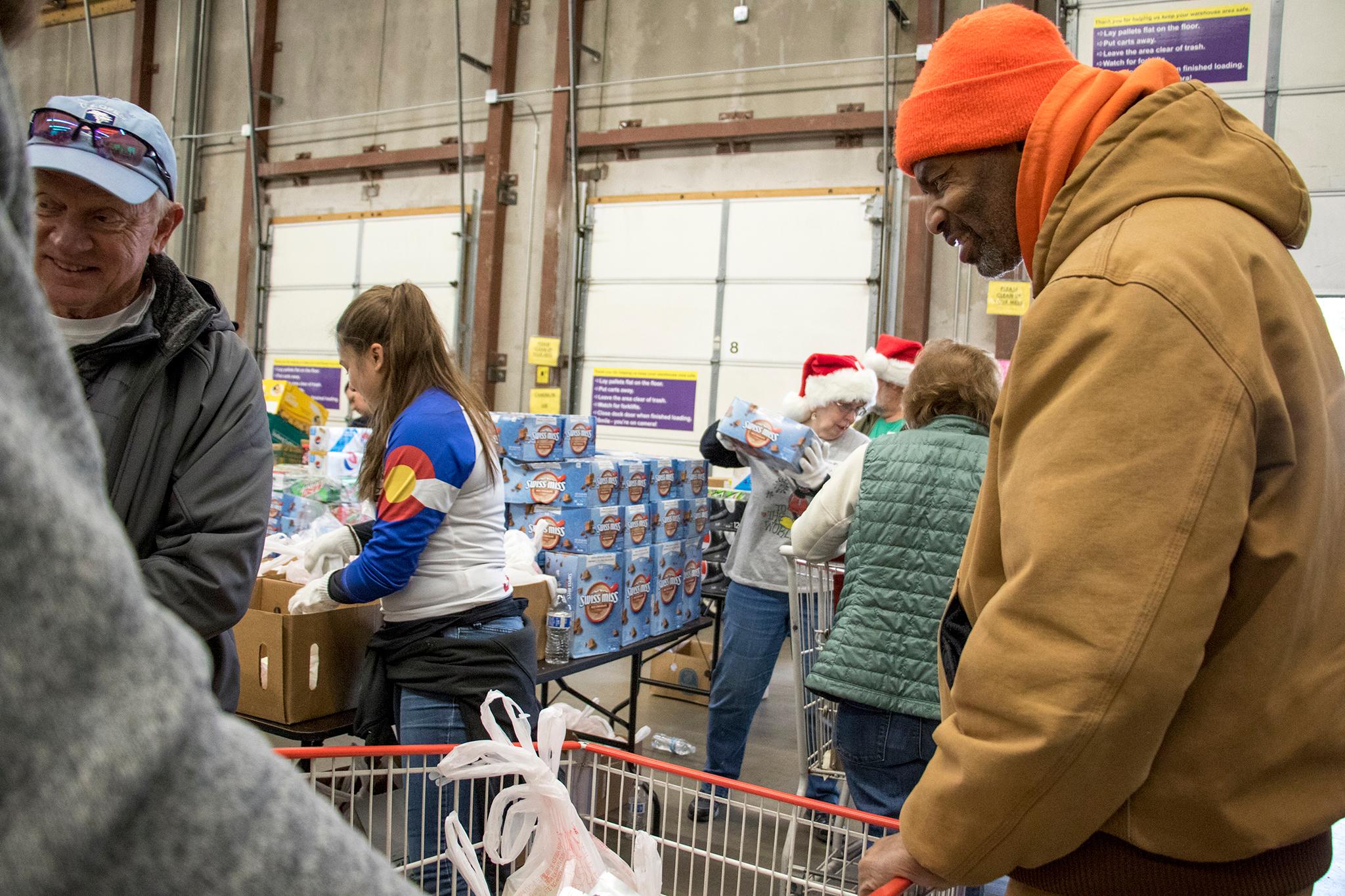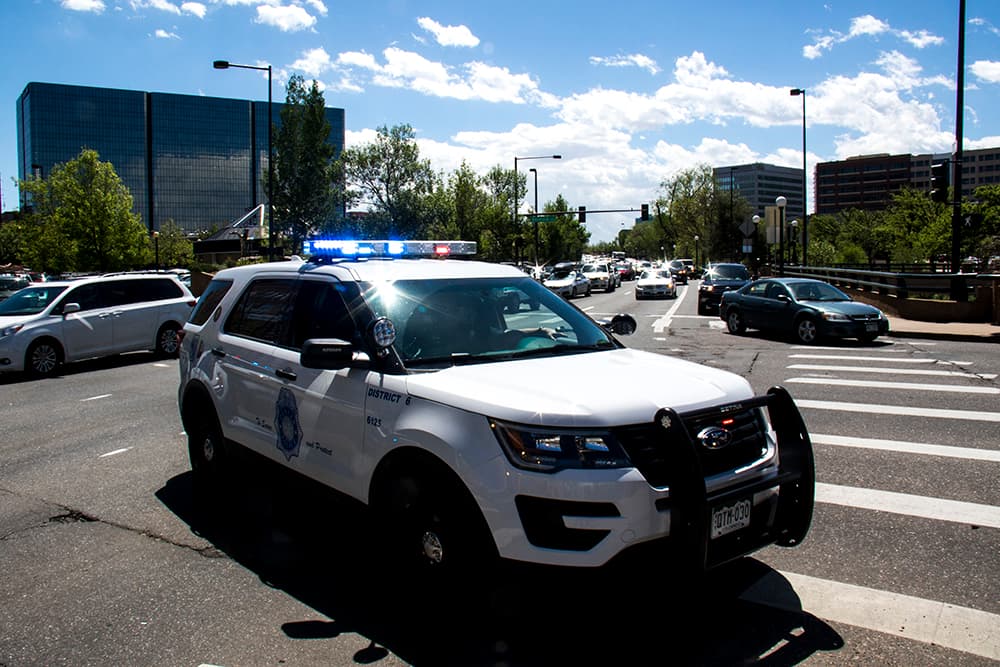UPDATE: Public Safety Executive Director of Public Safety Troy Riggs and Mayor Michael B. Hancock on Friday, Aug. 23, announced the launching of a pilot program allowing select Denver police officers to carry non-perishable food items supplied by We Don't Waste.
Denver's Department of Public Safety wants to give police and other first responders the tools to connect people who are food insecure to services and resources.
Executive Director Troy Riggs is working to expand the kind of work police officers, firefighters and first responders do for Denver residents, and among his latest plans is a program in which public safety personnel would carry nonperishable food items to give to people they might encounter who are in need. If it sounds a little weird, it's because food might not be the first thing most people envision when they hear "public safety."
"This steps slightly out of what their traditional job duties have been," said Zach Fleck, a senior financial analyst in the public safety department who's been spearheading the plans. "With the idea that if we can get ahead of some of these issues -- poverty, food security, behavioral health -- then ultimately what will happen is the instances of crime will be lower in the future than they are today."
The city is talking to local aid groups and nonprofits, including churches, to find community partners to roll out the program.
"We want to make sure we're able to provide food to people in need, so that when our first responders come across that, (they) take a few extra minutes and either have some food quickly available to provide to them or to get them to local community members or churches, nonprofits, community resources, to do that," Riggs said. "We'll be growing this over the next few months."

His latest idea stems from something he's grappled with on a daily basis since taking the job last year: How do you deal with crime and quality of life issues on a long-term basis?
"A lot of stuff we've done has been short term," said Riggs, who previously served as police chief in Indianapolis. "That's how police agencies, public safety respond across the nation. We want to start taking a deeper dive."
The overarching goal is to get to the root causes of potential criminal behavior.
The plan is part of the Denver Opportunity Index, an initiative launched last year focusing on improving residents' quality of life, which they believe helps improve overall public safety. It focuses on three pillars: financial security, health and people left behind. The plan also aligns with Denver police chief Paul Pazen's efforts to increase community policing.
Riggs describes a simple scenario: A person in hunger could be desperate.
"Sometimes people have no other measures, so there's a handful who might turn (to crime)," Riggs said. "The problem is when they do, those are just trying to get by, they become victims. They become victims of the situation. We want to do everything we can to address that."
A study published last year in the Health Education & Behavior journal focusing on children and domestic violence suggested early childhood exposure to violence in the home was six times greater in "persistently food-insecure households." There are other studies linking food security with exposure to violence, including child abuse and neglect.
Hunger Free Colorado estimates nearly 1 in 11 Coloradans struggle with hunger and not always having enough money to buy food. Riggs said data from Feeding America in 2017 showed Denver's food insecurity rate is at about 12 percent, which would mean about 80,000 people are food insecure.
Riggs says this plan could also show police in a different light.
They wouldn't just see officers taking enforcement action, but perhaps witness an officer providing someone with food. It could lead to a better partnership between police and the communities they serve, he said.
"We understand that crime prevention is more than just arresting someone," Riggs said. "If we can forge partnerships they understand our officers care."

Fleck said they're hoping to see public safety personnel taking an extra three minutes to provide additional support and maybe help avoid a future visit.
Public Safety spokesperson Kelli Christensen has heard numerous stories about police going above and beyond with simple gestures, like buying kids presents or mowing people's lawns.
"So the idea of police officers helping people when they're hungry is not far outside of what they're already doing," Christensen said. "It's just probably something that a lot of residents in Denver don't realize they're already doing that."












